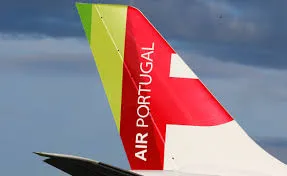Court of Justice of European Union (“the Court” or “CJEU”) published a press release numbered 68/20 regarding the case LE v. Transportes Aéreos Portugueses SA (“TAP”) on June 11, 2020. CJEU, touches many companies operating in global aviation industry. Overall, the Court responses the query whether an ‘extraordinary circumstance’ would constitute an exemption for an air-carrier to pay compensation for the cancellation or long delay of a subsequent flight.
The Dispute
The claimant, LE, made a reservation with TAP, the air-carrier and the defendant in the case, for a flight from Brazil to Oslo with a stopover in Lisbon (Portugal). However, during the first flight operated on August 21, 2017, one passenger bit another passenger and assaulted the crew members, thus, the aircraft had to land on Spain in order to disembark the unruly passenger on Spain. Therefore, with one day delay, LE flew to Oslo which was claimed to be the next flight operated by TAP for that location.
Since the delay took more than three hours, LE claimed compensation amounting to EUR600 by TAP on account of the delay according to Regulation No 261/2004 of European Commission (“Regulation”). TAP rejected LE’s claims on the ground that the delay was caused due to “extraordinary circumstances” and the long delay would not possibly be remedied.
As to resolve the issue, the claimant brought an action before the District Court in Lisbon, Portugal. However, the respective national court resorted to CJEU in order to seek for clarification on whether the claims of TAP regarding “extraordinary circumstances” is applicable to the case, particularly considering delay on the subsequent travel. Hence, the Court is asked to clarify and respond three critical queries;
– Would the unruly behavior affecting both the other passengers and the cabin crew constitute an extraordinary circumstance in terms of delay and accordingly, an exemption for the obligation to compensate?
– Would extraordinary circumstances still be applicable in case the flight is delayed due to delay occurred in the previous flight which also to be operated through the same aircraft?
– Did TAP take all “reasonable measures” to avoid such delay ?
Considerations of the Court on the Referred Queries
Primarily, the Court responded the query whether the requirements for an extraordinary circumstance are satisfied in the case. It examined the recital 14 of the Regulation where extraordinary circumstances are defined and the Article 5 of the same Regulation which stipulates passengers’ right to claim compensation for cancelation or delay. By scrutinizing on these two specific articles, the Court reviewed the dispute as if the behavior of the passenger was unexpected, unforeseeable and beyond TAP’s control in order to invoke extraordinary circumstance.
In the first place, unruly behavior of the passenger leading the flight commander to divert the airport other than the arrival airport was not found inherent in the normal exercise of the activity. The Court added that, although the duty of a flight commander is to ensure safety during the course of flight and manage the behavior of the passengers, the passengers are also deemed responsible to comply with the safety requirements. Such an unruly behavior was out of proper performance of a passenger, moreover, was unforeseeable. Even though, the flight commander and the crew members had taken all the measures on board, they would have limited means of controlling such behaviors of the passenger. By underlining the responsibility of the commander for applying any measures he deems necessary for the interest of safety, the Court stressed that the reaction of the flight commander as the pilot, was justifiable. In consideration of the foregoing facts, the Court concluded that disembarking the passenger on a different airport due to unruly behavior of one of the passengers would constitute and fall in the scope of “extraordinary circumstances”. Nonetheless, the Court pointed the national court to investigate as if TAP contributed to the occurrence of such behavior or failed to take appropriate measures as required.
As to the second query, the Court looked through the extraordinary circumstances and responded the question on whether the following flight was affected due to delay in the previous flight of the same aircraft. The Court stated that in terms of extraordinary circumstances no exclusive reference is made under the Regulation which may restrict the application of such circumstance for the previous flight of the same aircraft. In this sense, there was no legal obstacle to resort to extraordinary circumstances in the case. In its further note, Court cited the judgments of November 19, 2009, Sturgeon and Others case saying “air carriers are not obliged to pay compensation if they can prove that the cancellation or long delay is caused by extraordinary circumstances which could not have been avoided even if all reasonable measures had been taken, namely circumstances which are beyond the air carrier’s actual control”. By taking account the referred judgment, the Court stated that “a direct causal link” between the occurrence of extraordinary circumstance and the delay is required to exempt from the obligation to pay compensation for an air carrier. Since investigation of such link is out of the Court’s scope, the national court was called to investigate the direct link between the two flights as the cause to delay in this respect.
On the final step, the Court assessed whether re-routing in the case could be regarded as a reasonable measure taken by TAP. In reference to the Regulation, it is stated that air carrier is liable to prove that it adopted the appropriate measures for the incident and deployed all its resources in order to avoid the circumstances causing delay or cancellation. In doing so, TAP would be deemed exempted from its obligation to pay unless there was no other possibility of direct or indirect re-routing by a flight operated by itself or any other air carrier and arriving at a time which was not as late as TAP’s next flight. The Court underlined that such measure should not require the air carrier to “make intolerable sacrifices in the light of the capacities of its undertaking at the relevant time”. In relation to the tolerability of the measures and examination on the capacity of the air carrier TAP, the Court refers to the national court to investigate and assess whether TAP essentially had no other possibility in this case other than to apply re-routing.
In light of the stated insights, excepting the queries left for national court to answer, Court resolved to refer to extraordinary circumstances for delay in the following flight even though the driving cause was due to the previous flight.
Ezgi Aysima Kır



